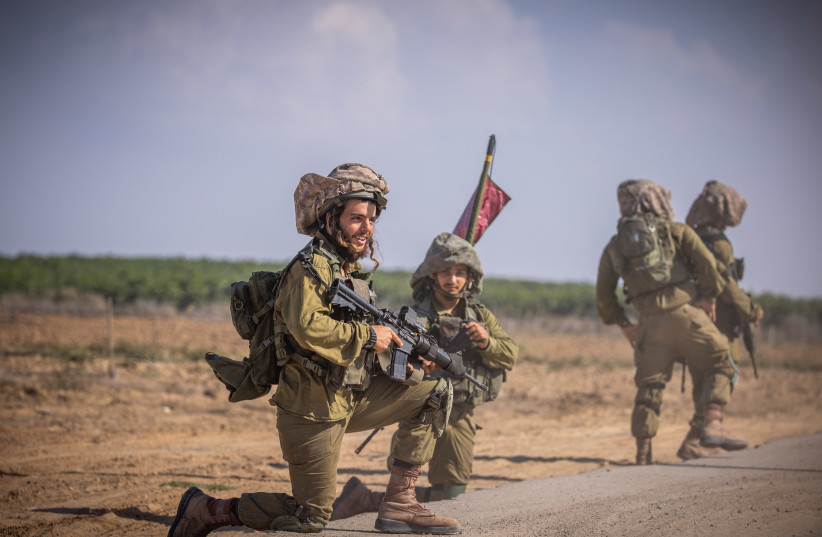Suspected terrorist at Gaza border turns out to be IDF veteran with PTSD
A suspicious individual found lying on the ground shouting ‘Allahu Akhbar’ in a Gaza border restricted zone was actually a former IDF combat soldier suffering from PTSD, Ynet first reported on Tuesday. The incident was independently confirmed by the Jerusalem Post.
The IDF’s Netzah Yehuda Battalion was deployed to the Gaza border last week after IDF observers spotted the man lying on the ground. The observers, believing he was trying to infiltrate into Israeli territory, raised the alarm, Ynet added.
As the man was located within the restricted buffer zone, the soldiers were permitted to use lethal force. However, the soldier leading the patrol decided to shoot at the suspect’s leg only, believing that he may have been wearing an explosive belt.
The man was evacuated to Barzilai Hospital in Ashkelon for treatment of wounds sustained during gunfire.
It was in the hospital that the man’s identity was discovered. Ynet reported that he was in deep psychological distress and had attempted to take his own life. He is now receiving treatment.

Questions were raised as to why the soldier leading the patrol chose not to shoot-to-kill. In a subsequent IDF investigation into the incident, the soldier revealed that, though the suspect was shouting in Arabic and threatening to throw grenades, he noticed key details that made him doubt whether the individual was truly a terrorist attempting to infiltrate Israeli territory.
One of the key details was that no one had observed the man approaching the border from the Gazan side, indicating the possibility that he approached from the Israeli side.
Southern Command officials told Ynet that “soldier applied all the experience and expertise accumulated in ‘Netzah Yehuda,’ which has been securing this sector in northern Gaza for about a year, to make a wise and measured decision.”
“No one would have blamed him if he had fired at the suspect’s chest.”
However, the officials added that the rules of engagement for soldiers on the front lines are very different now from how they were before, meaning “sharpness and vigilance at all times” are essential.
Commanders from the Northern Brigade of the Gaza Division praised the soldier and his battalion for their quick thinking and numerous operational successes against Hamas since the start of the war.
Netzah Yehuda, an ultra-Orthodox battalion, is part of the Kfir Brigade.
PTSD following October 7
Since October 7, rates of PTSD among serving and returning IDF soldiers have been high, according to reports over the last 15 months.
In January 2024, Walla reported that 1,600 IDF soldiers had shown symptoms of combat-related PTSD since the start of the war. Of those, 76% returned to combat duties after receiving treatment from mental health officials attached to their units stationed near combat zones.
Some soldiers have gone so far as to end their own lives, such as the tragic case of Eliran Mizrahi, a 40-year-old father of four, who struggled with PTSD for six months after his return from Gaza and died by suicide shortly before he was supposed to be redeployed.
“He got out of Gaza, but Gaza did not get out of him. And he died after it, because of the post-trauma,” his mother, Jenny Mizrahi, told CNN.
The increase in rates of post-trauma is not exclusive to soldiers; just this morning, State Comptroller Matanyahu Englman released a report stating that approximately three million Israelis may suffer from PTSD symptoms, depression, or anxiety in the wake of October 7.
Some 38% of those polled reported at least one symptom of post-traumatic stress disorder, according to the report. Of the 38%, 16% said they have a severe level of this symptom. The poll also showed that 32% of respondents reported signs of depression, and 21% reported anxiety.
“They are not getting the mental healthcare that they need so much. It cannot be that you must wait half a year in line to get treatment from a psychiatrist through the health funds,” he added.
Yonah Jeremy Bob contributed to this report.





Comments are closed.